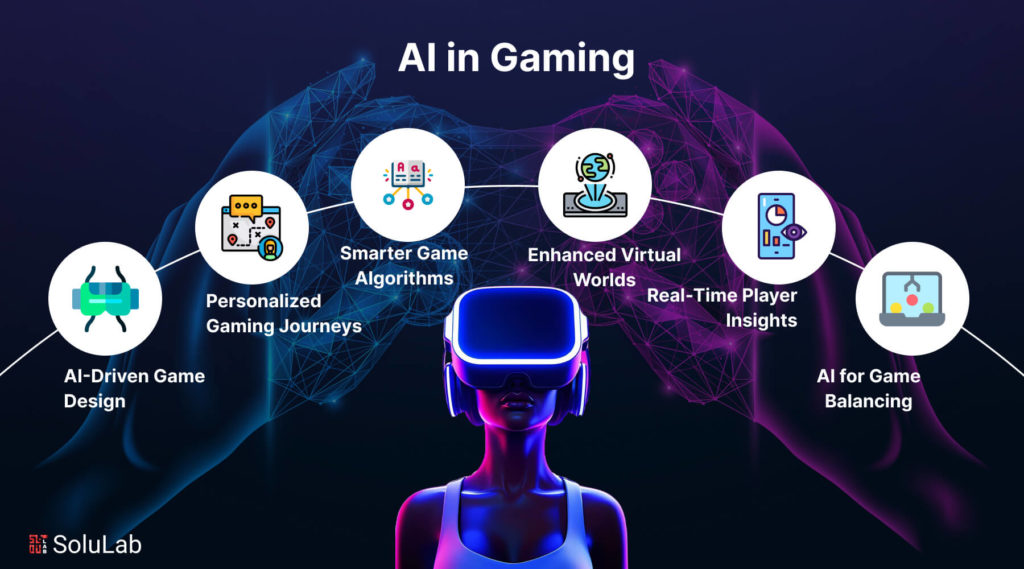
Artificial Intelligence (AI) has been steadily growing in importance within the gaming industry. In recent years, developers have been integrating more advanced AI systems into their games, providing a more immersive and challenging experience for players. AI-driven mechanics are now being used to enhance storytelling, improve enemy behavior, and even create procedurally generated worlds, changing the way games are designed and played.
Key Features of AI in Gaming
- Advanced NPC behaviors and interactions
- Dynamic storytelling and decision-making systems
- Procedural generation of worlds, environments, and quests
- AI-driven companions and enemies that adapt to player actions
- Personalized gaming experiences based on player behavior and choices
- Integration of machine learning to improve gameplay over time
How AI is Enhancing Gameplay
The integration of AI into gaming has led to several key advancements:
- Intelligent NPCs: Non-playable characters (NPCs) are becoming more lifelike with AI. They react dynamically to player actions, creating a more believable and immersive world. NPCs can also learn and adapt, making gameplay less predictable and more challenging.
- Procedural Content Generation: AI is now being used to create entire game worlds, dungeons, and quests that evolve based on player decisions. This results in a never-ending supply of content, increasing replayability and offering a unique experience each time.
- Adaptive Enemy AI: Enemies in many modern games are no longer scripted to follow the same patterns. With AI, enemies learn from the player's tactics and adapt their strategy, creating more difficult and varied combat scenarios.
- AI Companions: Many games now feature AI-controlled companions that help players during quests. These companions are designed to adapt to the player's preferences, offering assistance and support based on the player's playstyle.
- Dynamic Storytelling: AI allows for the creation of stories that evolve based on player choices and actions. This dynamic approach ensures that no two playthroughs are the same, as the narrative changes depending on the path the player takes.
Impact of AI on Game Design
The rise of AI is also reshaping how games are designed. Game developers are now creating more complex worlds and experiences, where every action a player makes can have a ripple effect on the environment and story. AI allows developers to build more responsive worlds, where the behavior of characters and the story’s progression can change depending on the player’s decisions, making each experience unique.
AI and Player Experience
AI enhances the player experience by providing more personalized gameplay. By analyzing player behavior, AI systems can adapt the game’s difficulty, provide relevant story elements, and even adjust the game’s pace. This creates a gaming experience that is finely tuned to the preferences and actions of the player, ensuring that no two experiences are ever exactly the same.
Future of AI in Gaming
As AI continues to evolve, we can expect even more impressive applications in the gaming industry. AI-driven characters will become even more lifelike and capable of reacting to a wider range of player actions. Procedural generation will allow for even more complex and expansive worlds, while personalized AI companions will offer deeper emotional connections. Moreover, as AI-powered games learn from their players, we might soon see games that not only adapt to individual preferences but also challenge players in ways that feel entirely unique and tailored.
Conclusion
The rise of AI in gaming has opened new doors for both players and developers. From smarter NPCs and adaptive enemies to dynamic storytelling and personalized gameplay, AI is fundamentally changing the way we play games. As technology continues to advance, we can expect AI to become an even more integral part of the gaming experience, ushering in a new era of interactive, responsive, and deeply immersive gaming worlds.